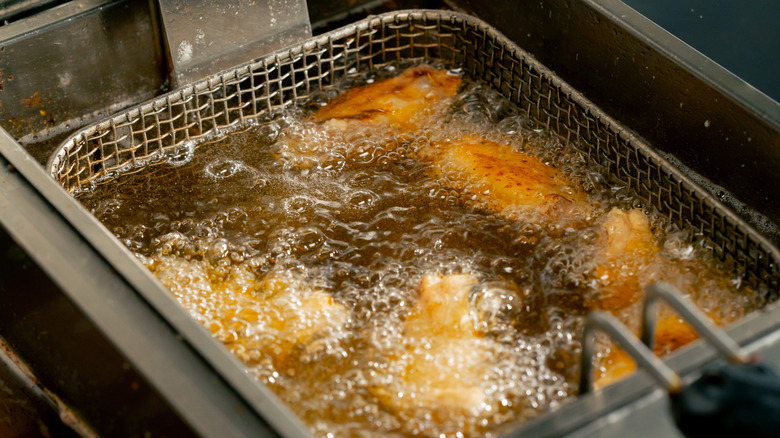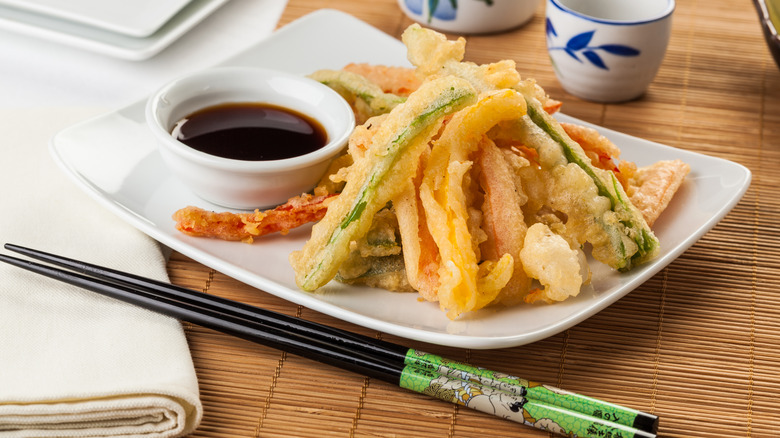Think Twice Before Ordering This Fried Menu Item At A Sushi Restaurant
When at a sushi restaurant, what could possibly be better than ordering something nutritious, like vegetables or seafood, but turning the volume way up and deep-frying them? This process creates tempura, tender veggies or seafood encased in a perfectly golden-brown batter crust that's the lightest, crispiest, tastiest thing you'll ever sink your into teeth into. But while Japanese food is the healthiest cuisine in the world, tempura is one of the unhealthiest things to order at a sushi restaurant, and not just because one serving can contain on average a half a day's worth of calories.
Go to any sushi restaurant in the world, and you'll likely find a mix of highly refined oils like vegetable, peanut, soybean, or seed oils used for tempura. The first issue with these oils is that they've undergone extensive chemical refinement, such as bleaching, deoxidizing, and heating, to remove impurities and ensure stability on shelves and during high-temperature cooking. This process not only depletes the oils of their nutrients but also leaves behind potentially harmful chemical residues.
Regardless of refinement, these oils also naturally contain high levels of omega-6 fatty acids, which although essential for good health in small amounts, become proflammatory in the body when consumed at a higher ratio than omega-3 fatty acids. Studies show that Westernized diets include more omega-6 fatty acids than the beneficial omega-3 variety, which supports a wide array of health functions. When these oils are heated for frying, the downward spiral only continues.
Avoid the fryer and opt for fresh
Heating highly refined oils to extremely high temperatures results in hydrogenation, a process that alters the original structure of the fat (the oil) and creates trans fats. Even in small amounts, trans fats are associated with an increased risk of developing health problems such as heart disease, type 2 diabetes, and obesity; as a result the World Health Organization (WHO) advises against consuming more than 2.2 grams of trans fat per day. If that hasn't completely deterred you from tempura, you should also consider that each time these oils degrade every time they're heated. Unfortunately, that vat of oil isn't just being heated for one order of tempura; it's reheated and reused for multiple orders of tempura each day for several days, and sometimes up to an entire week.
After deep frying, vegetables or seafood no longer offer much in terms of nutrition. While some vitamins aren't as sensitive to heat as others, the extreme temperature of the heated oil likely destroys the majority of vitamins that may be present, as well as some minerals. If you're looking for healthier options at a sushi restaurant, stick to protein and veggie sources that are either lightly steamed, grilled, sautéed, raw, or pickled/fermented (and probably skip the sake with sushi, too, though for taste reasons, not health). Some examples include nigiri or sashimi, which have higher protein than sushi rolls, as well as miso soup, cucumber salad, or steamed edamame. In general, you avoid any fried sushi options, including pan-fried.

